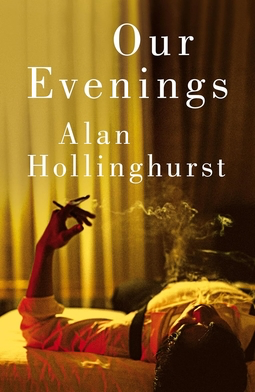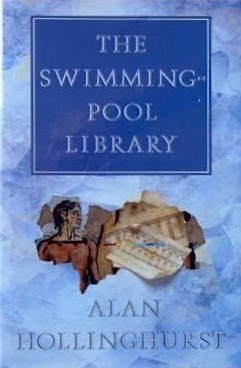Let me welcome our guest writer for November, with a blogpost about finding affordable opportunities for developing your craft.
Written by Deborah Barry.
The catalyst for rediscovering the craft
2020 – lockdown year – I completed my Open University Modern Languages degree and rediscovered my love of writing along the way. Deprived of a graduation ceremony – the elation of seeing my short Spanish story entitled Luna in print (Open University: A Multilingual Decameron) – was spine-tingling. Family and friends pestered – what was this traumatised child’s story about? So, the seeds of my debut novel Speak To Me were sewn.
Arvon – offering equality
 |
| The Hurst A work colleague recommended the Arvon Organisation and I have nothing but praise, having found their support invaluable as I navigated the world of writing as a fledging writer. A fully-inclusive charity that supports all writers – their only requirement is to love writing! They offer a wealth of courses for writers at all stages of their development. There are both concession rates (around a third off the full course fee), grants (for those on low incomes) and occasionally fully-funded places for under-represented writers. I applied and was very fortunate to secure a fully-funded place on a creative non-fiction tutored retreat at The Hurst in Shropshire. The tutored retreat – offering a balance of structure and free time to write/rest – was ideal. Classes typically started at 10am with a coffee break and finished at 1pm. All meals were provided, lunch is prepared by Arvon’s staff, all very healthy, using local ingredients. Supper is a team affair, with readings by one of the two tutors and a guest speaker. Sharing our work on the last evening was daunting but so good for building your self-confidence as a writer. I have since returned to The Hurst for a Self-Editing course and Arvon published my experience on their blogs: https://www.arvon.org/my-arvon-week-debi-barry/ One final point – the courses present an excellent networking opportunity – I am still in contact with a tutor who is a published author and her advice has been invaluable. Also I’m still in touch with some of the writers I met. It was both refreshing and soul-warming to know other writers suffer the same insecurities as you do! |
The Literary Consultancy is the main organisation behind the Free Reads scheme which is an Arts Council England funded initiative. Applications go through a regional writing partner, e.g. the National Centre for Writing, Arvon and Spread the Word. They offer a free initial manuscript appraisal they offer to talented writers from marginalised backgrounds and under-represented groups. If successful, an initial report on the first 15,000 words of your manuscript is provided. They offer a 100% (and 2 at 50%) bursary on their 6-week Self Editing Fiction course, whichI found it hugely beneficial as I had my work assessed by an established crime writer who commented on all the key areas of writing a novel: theme(s), characterisation, plot (conflict, climax), voice, setting, POV (point of view) e.g. 1st, 2nd or 3rd person and dialogue.
I enjoyed working with Jon Barton, an award-winning author. As well as 12 hours of live teaching online, I received a report ahead of my initial 1:1 session with Jon (based on a small sample of my writing). I was impressed with the level of detail Jon gave given the extract was small. His feedback was constructive and thought-provoking and will definitely help me in honing my manuscript to a submission standard. A wealth of digital resources are available during and after the course has finished, which have proven extremely useful as I wrestle with my second draft. The small group dynamic (maximum of 12 per course) also helped me work collaboratively with other writers which is sometimes difficult in the virtual world. TLC offer a range of resources for writers – many of which are free to download; https://literaryconsultancy.co.uk/resources/.
Calling female writers!
Mslexia magazine is a great resource, offering both support, courses as well as submission opportunities. They offer bursary places on their on-line courses. I successfully applied for
 a place on an Editing Your Novel course a few years ago. Although very intensive (9.00 – 5.00pm each day for a week) the quality of both the teaching and wealth of resources was very high.
a place on an Editing Your Novel course a few years ago. Although very intensive (9.00 – 5.00pm each day for a week) the quality of both the teaching and wealth of resources was very high.
There is a quarterly magazine available – digital is available on a quarterly recurring subscription (£6.99) or one-year subscription (£22.99), the printed version is £32/year by DD on a recurring subscription or £42 as a one-off payment.
They offer membership to the Salon for an additional £10 which gives you free entry to specific submissions not available to ordinary members and a wealth of resources and writing tips. I’d definitely recommend subscribing! https://mslexia.co.uk/
Be brave!
Five years on, I’m on my second draft and hope to send it out in 2026. I have a huge sense of accomplishment at the opportunities I’ve managed to secure over this time as well as an extensive writer’s tool-kit.
Grants, free places, bursaries, concessionary rates
These writing events can be expensive, but there are hundreds of opportunities to get a reduction on the full price. The ones I’ve selected are based solely on my experience, but you may find useful:
- Sounds obvious, but check the criteria carefully before you apply. There is nothing more frustrating than discovering you’ve spent a few hours writing a letter for a place and you’re not eligible. Some are restricted to specific under-represented groups (e.g. working-class writers, those with a disability, BAHME writers) or aimed at young people, students, for example. Be mindful of this. Self-published writers take care - some opportunities do accept submissions whilst others don’t.
- Be transparent – especially for financially-related opportunities. Increasingly, organisations want evidence of low-income especially if you have limited income but do not qualify for state benefits.
- Treat each application with the same care and consideration you would devote to a job application. Do exactly what they ask for e.g. if they stipulate 3,000 words don’t send 4,000. Swot up on the organisation and ensure you tailor the application to align with their ethos. Make it personal, show how the opportunity would benefit you in terms of self-development and/or how it will help your writing. Show your enthusiasm and passion but be yourself.
- If you’re serious about getting published by whichever means and entering competitions, consider buying The Writers’ & Artists’ Yearbook (published annually by Bloomsbury (https://www.writersandartists.co.uk/advice). It should be available in the Reference section of your local library or you can buy a good second-hand copy on one of the many online book providers.
- Visit your local library – serendipity was smiling on me when I discovered a published writer Lynn Griffin was setting up a local writing group and the first meeting was on my birthday! Two years later, our little group is still going strong, and I find a tremendous support. It has brought me both the trust and friendship of fellow writers as well as the expertise and life experience of an extremely modest writer. Check out Lynn Griffin’s blog at https://www.wifeinthewest.com/
- Where competitions offer a response date, do check up once this has passed. I emailed about a bursary place I hadn’t heard back from. Although I wasn’t the winner, I was next in line because I’d been pro-active and chased. I was lucky enough to be offered the place when the initial winner had to withdraw due to personal circumstances. From the course, I was able to submit a chapter of my novel which I was delighted to learn was accepted for publication in Dialect Writers’ 2022 anthology. Dialect support writers in rural areas in particular and further details can be found at https://www.dialect.org.uk/
- Writing Competitions
If you are an under-represented writer, some organisations offer a fixed number of free or heavily subsidised places – so do check, because the entry fees can mount up – £10 is pretty standard. The most expensive I’ve entered was Bath Novel Prize at £29.99.
I’ve spent a lot of time and energy applying for competitions and have yet to win anything. However, that’s not to say you won’t! Competitions can be found either on-line or via the Writers’ & Artists’ Yearbook or Mslexia Indie Press Guide.
It’s such a competitive business. It’s best to remember that even local competitions receive hundreds of entries. A recent one I’d entered had over 2,000 entries! It’s also highly subjective. My writing is more commercial fiction and perhaps doesn’t ‘stand out’ – yours might.
Someone has to win!
The best of luck!
 |
| My writing group buddies! |
























